all of the selves we Have ever been
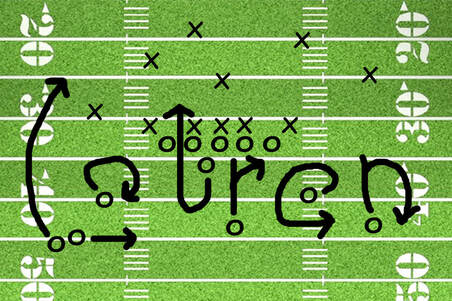 I tried a new recipe this morning. As I mixed condiments into a sauce to spread over some raw chicken, I began to doubt my choice of recipes. “Oh, geez! That looks like diarrhea,” I said. While not an enjoyable sensory experience, it did bring back a memory from my youth, and it made me smile. When my mother grew tired of her children’s complaints about “what’s for dinner,” she had a standard response for the next and last critic of the day. “What’s for dinner, Mom?” “Shit on a shingle.” “Mmm. Sounds good, Mom.” Enough questions asked. Suddenly, cabbage and Brussel sprouts didn’t sound so bad even if they smelled the same as the daily special. It was a master’s strategy. My mom was a well-educated, articulate microbiologist, not a mental health therapist, but she sure understood the power of crass language and visualization for changing minds and behaviors. Face it. Cooking for a family is hard work. Thinking about what to cook in order to please every taste is exhausting. However, children don’t know all of that. They are primitive pleasure-seekers with uneducated palates. They want what they want. It is easy to complain when a full meal appears on your table every evening. We were regularly reminded to eat what was on our plates and not be wasteful. “There are children starving in China,” our parents said. That was another master strategy–using guilt to gain compliance and elicit gratitude. My knowledge of China was limited to canned La Choy Chop Suey and the understanding that if I dug deep enough, I could tunnel my way to Asia. I thought my parents made up the story of those hungry children just to shut us up. Turns out children really were starving in China. While I was grudgingly choking down limp spinach, the Great Chinese Famine was taking 36 million lives. I guess that would have been far too much for a six year old to comprehend. It still seems unfathomable. Old-style parents weren’t about to explain themselves, or make six different meals, or fly in an order from a Michelin three-star restaurant in New York. There were limited prepared or processed foods in the house and, most certainly, no microwave to fix something special and quick for each picky eater. If visualization and guilt did not work, it boiled down to “Eat what’s on your plate…or else.” Going to bed without supper was an option in the parenting playbook, and we were smart enough to know that the “or else” chapter might contain scary mysteries we could imagine no better than a great famine. And so I plan to eat that chicken I made this morning--no matter what. Thankfully, it came out of the oven transformed--moist, browned and smelling delicious. Hopefully, I won’t be thinking of diarrhea when I dig in at dinner tonight. During this time of COVID-19, I employ the strategies from my parents’ old playbook. I take a bit of this and that from the refrigerator and craft a wholesome and delicious meal. I eat my sour-smelling vegetables, and I am grateful. The daily news reminds me that people in my own country as well as others around the world are going hungry. I don’t complain. I eat what is on my plate, and I do not waste food. I have not had to go to bed without supper. However, I do wonder what scary “or else” COVID-19 may be keeping from us. I pray there is a chapter in my parents’ old playbook that will see me through. Bon appetit!
0 Comments
 When my son was in preschool, he wanted a pet. “Pets are living things,” I said. “They require good care and attention.” A busy mom, I already had too many living things to care for, so we settled on some “starter pets”—three hermit crabs. Sam and I and two little friends made a visit to the store to acquire our new pets and all of the supplies necessary for a proper and attractive habitat. As we sat around the table opening packages and preparing the glass aquarium for occupancy, an excited, fast-reaching arm knocked the smallest of the hermit crabs to the floor. There was silent devastation as we gathered around the scene of the accident. The hermit crab was no longer a living thing. The children called for a proper burial. After we secured the surviving hermit crabs in their new glass house, we ceremoniously carried the tiny cadaver outdoors. We chose a small patch of soft earth alongside the driveway. A hole was dug and the hermit crab laid to rest. As we circled the spot with downcast eyes, my three year old son said, “Mom, I think you should say a few words.” A sweet and touching moment it was. At that tender age, Sam already understood that death was a solemn moment to be acknowledged. He believed that his mom would know just what to say. Life should be remembered in its passing. I spoke a few somber words about a pet we barely knew and then we left the hermit crab to nourish the soil and the daffodils in the ongoing cycle of life. It was a short, fast walk from the driveway to the front door and from preschool to adolescence. In their teen years, my children rarely asked me to say a few words. In fact, they often begged me, “Don’t say anything, Mom!” I understand that adolescence is a self-conscious time filled with fear of embarrassment. Youth have that invisible audience that travels inside their heads mocking them incessantly and filling them with self-doubt. Everything parents say and do turns a teen’s fears into reality. But there were times when we witnessed troubling events. The children could feel my back tense up and my shoulders lean forward indicating that I was about to rise from my seat. I would feel a hand on my arm and hear the adolescent mantra in my ear: “Don’t say anything, Mom!” In those instances, my reply would be, “If this is how it is today, and I don’t say anything, how much worse will it be tomorrow?” Young teenagers want to live through the day; they don’t care about tomorrow. And now tomorrow is here. Social media dominates our lives. The once invisible, contemptuous audience has become a reality. My children are adults; they don’t need me to speak for them. They can speak for themselves which is good because I am finally… speechless. 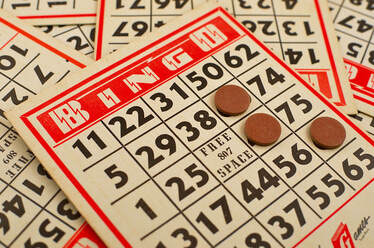 Life is a numbers game. I learned that in the church basement when I was seven. I am not certain where it ranks in the catechism of the Catholic Church, but somewhere among Baptism, Penance, Eucharist, Confirmation, Holy Orders, Anointing of the Sick, and Matrimony, there is also BINGO. At least it seemed so in my youth. The church basement was reserved for special functions, chief among them were funeral meals and BINGO. There was always a good turnout for mass or a funeral meal, but BINGO drew the biggest crowds. Sure there were some raised eyebrows if someone MIA for mass was later spotted at BINGO, but no hard feelings. Play on. The participants were the usual church crowd but in casual clothes. There were no stiff jackets and ties. No tight shoes, hats, chapel caps, or veils. No expressions of piety. Everyone was loosened up. Game faces on. Sinners mingled with saints. Protestants and non-believers came too. In the Lord’s game, everyone was welcomed at the BINGO table. It seemed to me the entire town was present. Like Brother Love’s traveling salvation show, it was “pack up the babies and grab the old ladies” ‘cause everyone goes…If foreign vandals had wanted a big haul, all they had to do was check the church bulletin for the BINGO schedule. No one was home, and every door in town was unlocked. With all of the adults in the church basement, there was no one to watch the children, so we got to go too. That meant staying up late, a much-prized accomplishment of youth, a sip of adulthood like trying on lipstick or tasting dad’s beer. In the context of the times, men ran the show, usually Knights of Columbus. They had no sparkling armor but wore soft cotton aprons with pockets full of change and tiny pencils. Women ran the food stands and DOMINATED the sport. It was women who filled the tables to play. It was rare to find a woman with only three cards. That was the minimum and the sure sign of a beginner. Many of the Olympians watched over three or four long rows of cards. The room was filled with lively chatter and tobacco smoke. No one worried about lung cancer when she was busy looking for B-9. It was an evening of contagious joyful anticipation. Even losing was not so bad. It was how you played the game. Observing the players, it would be impossible to believe that BINGO is a game of chance. Among the seasoned, there were strategy and rituals. Folks had to have their lucky seats. Same people, same seats week after week. It was easier to find someone in the BINGO hall than in the telephone book. They positioned their paper coffee cups and enjoyed their lucky snacks at the propitious time. People looked for cards with their special numbers. They brought their own equipment including disc markers, wood and later, plastic, and ink daubers, the true mark of a professional. While I had a sweet prayer book with a picture of Jesus on the cover, and a rosary with tiny white beads, the prized possessions of a second grader, what I really coveted was the womanly red BINGO blotter. It put me and my stubby, dull-tipped, yellow pencil to shame. I did not covet my neighbor’s wife, but I would have wrestled her to the ground for her ink dauber. There was excitement at the front of the room where ping pong balls stamped with numbers 1 through 75 rotated in a wire cage. Later, it would get fancier—balls would float around inside a glass aquarium-like box and pop out through a small hole on a gush of air. A man called the numbers through a microphone. If the room was noisy, the man might say, “Do I hear a BINGO?” The sport of BINGO requires exquisite hand-eye coordination. Multiple markers are held in the palm and rapidly moved onto the BINGO card while the next chip moves up between the thumb and index finger. All the while the eyes are moving quickly up and down each row of every card. Eye movement therapies may have gotten their start in the BINGO hall. For those women who had children tagging along, the moms, grandmas, and aunts kept watch over those cards too, reaching over a shoulder to capture a missed number called. There is no falling behind in BINGO. The worst experience was to find that you had sat on a winner due to inattention or a bump and shift of the markers. A player had to be attentive to keep up with the game being played. There was the straight row, four corners, postage stamp, criss-cross, and diagonal. So many ways to win! In between the regular games, the MC would announce “specials.” These were additional small paper “cards” sold for an additional sum. This is where the coveted BINGO blotter was put to proper use. People around the table grew tense when someone announced she was “set”—meaning she only needed one more number to win. Generally, a large number of folks became “set” at the same time adding to the tension. When someone finally shouted “BINGO,” you could feel bodies relax as they cleared their cards for the next round. The big game of the night, the finisher, was the cover-all. It took the most time to play and had the largest prize. By the time the cover-all was over, folks were tired and full of limp pizza and chocolate cake. Most of us walked on home. We were back in our lucky seats the next week. The game never got old, but I did. I got busy with life as a teenager and young adult. I went to work and raised a family. Years later, in another town, at another church, they would do away with BINGO. The pastor said it was a form of gambling and that the parishioners who could least afford to play were the ones spending their income on the game. I guess the poor aren’t allowed to make their own choices or have their own fun, be part of the same community as those that have money to play. BINGO had fallen out of the ranks of the seven sacraments and into the refuse pile of the seven deadly sins. I was devastated by the news. I played a little field hockey in high school, but I never really had a sport except BINGO. BINGO is every man’s game regardless of circumstances. It is beloved and played in preschools and nursing homes, VFWs and church halls. Can we be sure Jesus and his disciples didn’t play BINGO? What were they doing at the fish dinner while they waited for the loaves and fishes to multiply? Maybe that’s why the crowd was larger than expected. I am not a competitive person. What’s great about BINGO is that we didn’t play to defeat our neighbors; we were all one team taking a break from the demands of life and trying to defy the odds. There was no competition, no hostility. In the present moment, I say let’s get the police, the protesters, and local community members together, fill the streets with folding tables and chairs. Provide plenty of hot coffee, cold pizza and home-baked goodies. It’s time EVERYONE got a fancy ink BINGO blotter, no questions asked. Let’s get together in the game of the Lord. Life’s a numbers game. Lately, we’ve been counting cases of COVID-19, but when this pandemic is over, I am heading to a community hall or a nursing home and getting back in the game. Do I hear a BINGO? 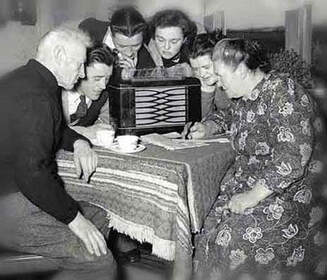 Sometimes when I need to wind down for sleep, I turn on my bedside radio. Last evening the radio show host was talking with callers about their fathers. It reminded me how much my own father loved the radio. There were many radios around our home in every conceivable shape and size. Wherever my father was, one of the radios was playing. In the evenings, dad would hunker down in a basement area he established as his private, personal space. He especially enjoyed listening to talk radio. Occasionally, dad would be one of the callers. During the short delay between call-in and broadcast, dad would race up the basement stairs and turn on another radio so the entire family could hear dad on the air. He delighted in his seconds of radio celebrity. While sheltering-in-place, I have kept busy sorting through boxes, envelopes and binders of memorabilia brought down from the top shelves of my storage closet. Among the treasures, I came across a note my father wrote about his “radio days” as a youth, the time when he began to nurture his love of the medium. Dad died thirty years ago, but the radio always brings him back to me. In honor of Father’s Day, I am sharing dad’s notes about his radio days. Here’s to you dad! Listening to the radio is like reading a good book. The descriptions are verbal, yet the mind conjures up vivid pictures. You might find yourself laughing or crying along with Ma Perkins as her life at the lumber yard took a turn for the worse. After school there were fifteen minute broadcasts of a variety of adventure programs designed for children. “Hop Harrigan,” America’s ace of the airways, would blast from the speaker at 3:15 PM. That segment was followed by Dick Tracy and the Lone Ranger. Evil-doers were generally finished off in fifteen minutes, but occasionally, there were cliff-hangers. It would take a number of segments for justice to triumph. The sponsors of these shows enticed the listening audience of boys and girls into buying products by offering a prize. By sending in a label or a box top and a small fee a listener could obtain a secret decoder ring, or some other item used in the show’s segment. Without the item you would surely miss those secret messages sent directly to you by the show’s hero. Worse, you would be belittled by your peers for not having the latest item. I remember being eight or nine year’s old sitting in a darkened room listening to “Lights Out.” The only light in the room was from the glow of the radio dial. I waited in silence with my heart racing anticipating a good scare. The sound of the creepy, squeaky door opening at the start of the show… nothing could compare to that! My eager ears took it all in and went on flights of fantasy. For a brief time I could escape to places only my mind and imagination could take me. Those days have passed, but I will always remember the heroes that saved the world from crime and corruption: the Green Hornet, Jack Armstrong, the Lone Ranger… They are gone, but not forgotten. You too, Dad. You too. Happy Father’s Day! 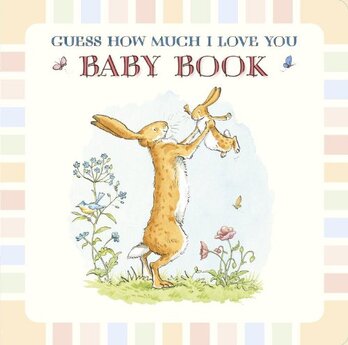 Some people are memorable no matter the passage of time. A dear neighbor was such a person for me. The woman’s name proved difficult for my toddler-son to pronounce, and soon she became known in our household as “Mrs. Wiggly,” a moniker suitable for a fairy tale character. It was a perfect name for our petite, kind, and good-natured neighbor who had all the time in the world for little children. Her fairy tale stature was enhanced by the treats she sometimes magically produced from the pockets of her white cotton shorts. A narrow, grassy slope separated Mrs. Wiggly’s driveway from ours. The children adored her and watched from the large living room window for Mrs. Wiggly to make an appearance. The kids then scrambled down the slope to take a seat beside Mrs. Wiggly in one of the plaid folding lawn chairs that decorated her narrow front porch. I enjoyed spending time with Mrs.Wiggly too. We could easily find topics for conversation even if we had spoken two or three times earlier in the day. One morning, I noticed that Mrs. Wiggly was sitting on her porch wiping tears from her eyes with a wad of tissue. When I inquired about the reason for her crying, Mrs. Wiggly sobbed, “My baby signed up for Medicare today.” Not what I expected. As a mother of two young children, I was busy filling baby books with memories of all the “firsts.” This one had never entered my mind—one day my children will apply for Medicare. Better save a blank page. Will I be equally impacted by my children achieving official senior citizen status, I wondered. And what other firsts have I failed to consider? While I was experiencing new motherhood and measuring the ages of my children in pounds and inches, number of teeth, vaccinations, and school years, I was presented with the reality of a future in which my children would be not just grown up…but grown old. In Mrs. Wiggly there was a new kind of reckoning, a great sense of loss. Like the Wicked Witch in the Wizard of Oz, Medicare reached out on behalf of old age and threatened, “I’ll get you, my pretty, and your little girl, too!” We are accustomed to being older than our children and seeming ancient to them. Is it possible that we will ever see them as old? How will it be to have a parent-child relationship in which we share the same gerontologist? When we go for our heart caths together? Both sit out a grandchild’s wedding dance due to arthritis? Wear each other’s silver sneakers? At some point our children will begin to keep a book about us—doctor’s names, appointment times, medication schedules, unexplained symptoms, the name of our accountant, and where we keep our passwords. Instead of the tiny envelopes I keep that hold a lock of their hair, a baby tooth, they will have notes about where I keep my wig and the cup for my dentures. Today, I see my children as young adults. They are busy with life, so healthy, competent, and confident. It is hard to imagine a day when they will sign up for Medicare. And do they see a day when they will be keeping that book about me? That is too big for my brain to comprehend. I’ll see if I can make it to Medicare myself… For now, I am going to stick to the path in my fairy tale forest and make believe that my children will always be young.  I knew an older gentleman who spent the last months of his life adrift on a sea of tears. An early life of tragedy became an undertow pulling him out into deep water. Was it depression? Perhaps, but such a diagnosis seemed inadequate. It felt disrespectful to dismiss this kind and remarkable man with a simplistic explanation and a couple of pills. Something was emerging from deep within his soul. Something he could no longer hold back. His biological clock knew time was running out. A more accurate description of the man’s status might have been an acute state of poignancy, a condition common among the old, but one that is kept a hidden, dark secret. It is an inconvenient truth to acknowledge because treatment requires time, patience, and a willingness to share the pain. We grow more eyes as we get older. Those eyes have seen many things. They become more insightful with each passing year. Looking back reveals new truths. Poignancy reflects the extraordinary capacity we gain with age, a blossoming spiritual dimension that readies us for life on the other side. It is further evidence that we are made in the image of God. It is as if we hear the words, “Let there be light.” A big-picture view of our lives is illuminated. We can look back on our childhoods and remember ourselves through our child’s eyes. But more piercingly, we also see our innocent child-selves from the point of view of a loving parent, a grandparent, or one of the many other adult roles we have occupied. And so, we experience deep new feelings for that child we once were. We have greater compassion for a youth who may have been abandoned, lost, foolish, reckless, or misunderstood. We see and understand things about ourselves and our lives that we could not have known back then...And it moves us deeply. I think of men and women I’ve met who grieved for their child-selves orphaned by the Great Depression, or the teen-selves who enlisted at the age of fifteen unprepared for the horrors of war, or the Holocaust survivor-selves who faced the reality of stepping left and living while a mother and sister stepped right and perished. There is also the reckoning of the other more common twists and turns of life. It is now vivid that day when one drink became one too many. It is clear the morning when the missed assignments added up to failure, when the bills not paid became overdue. And there are the questions and hurts—why didn’t someone help me with my homework? Why didn’t anyone understand that my difficult behavior was grief over the death of parent? Why didn’t someone try to stop me? Why didn’t someone love me? Why didn’t I Iisten? Why? Why? Why? And the eyes of our eyes become like members of a grand jury with many backgrounds and points of view. The many eyes examine the evidence trying to reach a unanimous conclusion. But there are dissenters, eyes that see things differently. Every dissent means a new and painful re-trial. We argue with ourselves. The future is so short now. Not much left to see. But the past…the past is so long, so full, so much evidence to review as our own lives go on trial. We question the accomplices and the witnesses, the bystanders who did nothing. Sometimes there is growing compassion for the accused. Sometimes deepening disdain. It is dress rehearsal for the cross-examination we anticipate when we arrive at the gates of Heaven. Poignancy is part unresolved tragedy and part new-found tenderness for the child and young adult we once were. Poignancy sometimes contains regret that we weren’t wiser while there was still time to change. And poignancy is facing a helplessness we once endured in circumstances we could not influence. It is realizing we did what had to be done when there was no time for examination, no other options. Poignant memories can include gratitude for the things that could have gone wrong but didn’t, for the hands that did reach out, for the voices that did speak, encourage, redirect, for the eyes that acknowledged our lives, our suffering, and our accomplishments. Poignancy is also part nostalgia for the sweetness of life. Sometimes a memory is so sweet that it hurts. Poignancy is part sadness for the passing of life. So many good years. So many happy memories. A lot to lose. Our loved ones will go forward into a future we will not share… Poignancy is not a word that lends itself to acronyms and the shorthand of text messaging. It is not a word to be spoken in haste or understood in casual conversation. It does not reveal itself along with heart rate and blood pressure during a fifteen minute office visit. Poignancy is not a word for the young. Its meaning evolves with time. It requires experience informed by living long, suffering, and enduring. It is a courageous word. Sometimes people pass through Hell on their way to Heaven. Maybe that is how God knows the weary from the wicked, and the self-examined from the self-absorbed. I hope there is a special entrance for all of the humble, good people who drift to heaven on a sea of tears. 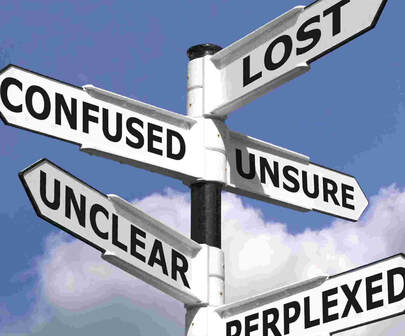 The times we are living in are indescribable. I think of the words of Yogi Berra who said, “We’re lost, but we’re making good time.” As I travel along long the road adrift and at high speed, I try to distract myself by pondering other puzzling questions. Ride along with me for a minute… I know I am not alone in wondering, is it butt naked or buck naked? And do you nip it in the bud? Or nip it in the butt? I guess if depends on whether you or a florist or a physician. While we’re there, is it Lyme Disease or Lime Disease? Arthritis? Or Arthur Itis? Or maybe Arthur Itis has arthritis? Pneumonia or the ammonia? Abdominal pain or abominable pain? Ooh! Terrible to have both. Acute angina or a cute vagina? Gotta get that right. Might leave folks wondering if you know which end is up. Moving on from bodily ailments, is it acorn or eggcorn? Happy New Year or Happy You Near? Better Nate than lever? Or better late than never? Might matter to Nate. I saw you light a fire or I saw you fight a liar? Hmm. Timely. Is it statute of limitations or a statue of limitations? I am going with statue of limitations. And they are coming down. We’ve been lost, but we’re making good time. |
AuthorLilli-ann Buffin Archives
July 2024
Categories
All
|
 RSS Feed
RSS Feed